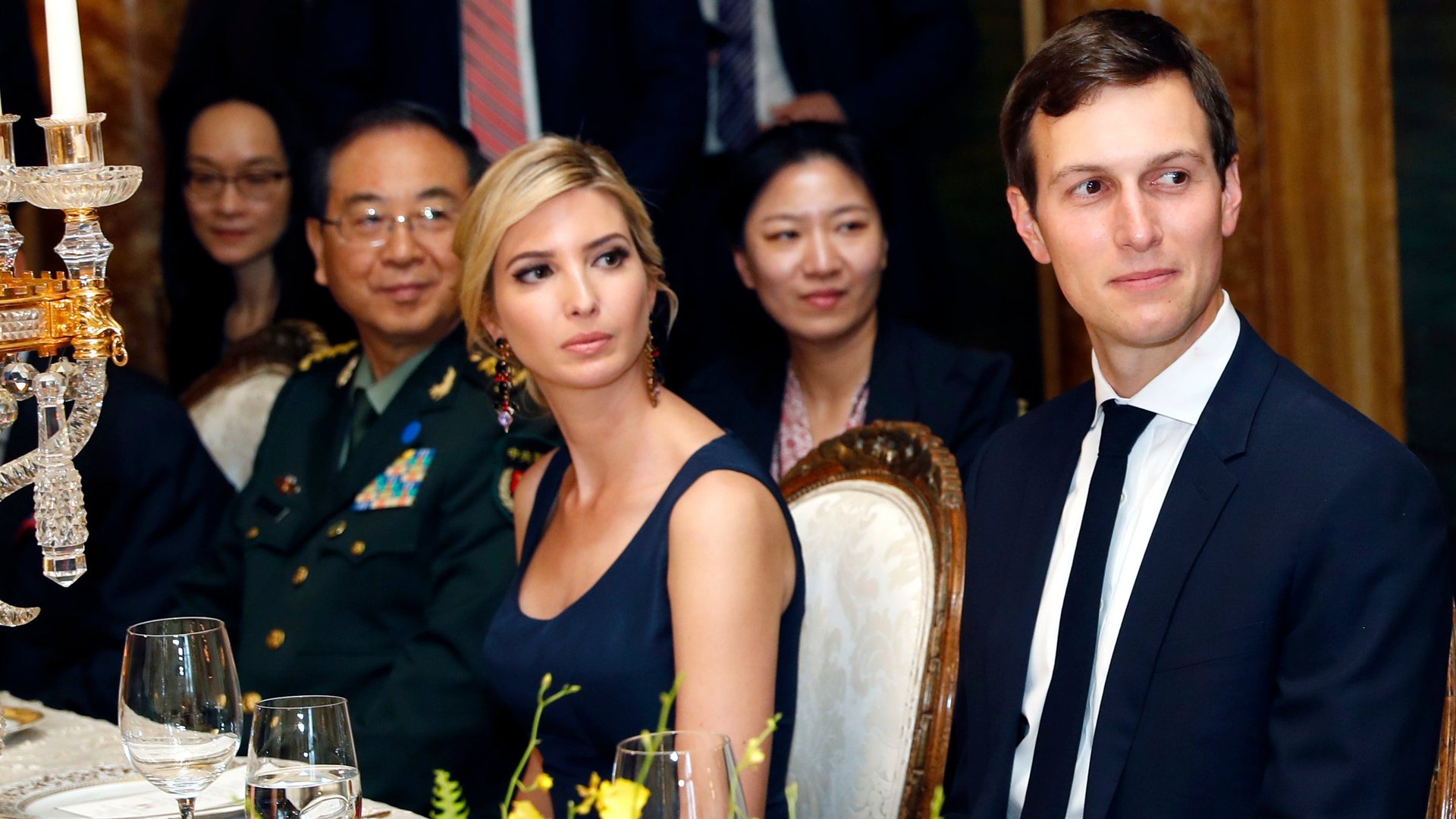Ivanka Trump received valuable trademarks from China just before Donald Trump’s ZTE reversal
Donald Trump has pitted himself against his own cabinet officials, the US law enforcement and intelligence communities, and even the will of Congress, all in an effort to save Chinese telecom manufacturer ZTE.


Donald Trump has pitted himself against his own cabinet officials, the US law enforcement and intelligence communities, and even the will of Congress, all in an effort to save Chinese telecom manufacturer ZTE.
ZTE builds components for cell phones and mobile towers, and got caught selling them to Iran in violation of US sanctions. As punishment, US companies were prohibited from selling ZTE parts needed to assemble its products, leaving it on the verge of bankruptcy—until Trump tweeted his intention to fix the problem and save Chinese jobs on May 13.
In the week before Trump’s reversal, the Chinese government awarded five new trademarks to his daughter and White House adviser, Ivanka Trump. Two more were awarded afterward. Experts told the New York Times (paywall) that the trademark process, which began with Ivanka Trump’s application in 2017, moved unusually quickly.
On May 25, the White House announced that a deal had been reached for ZTE to stay open, separate from broader trade talks in which Trump is pushing China for as-yet-to-materialize concessions. Democratic Senate leader Chuck Schumer said such a deal “would be a huge victory for President Xi, and a dramatic retreat by President Trump,” and Republicans like Marco Rubio are making similar arguments.
The lack of transparency around Trump’s finances, along with the numerous members of his circle who have been indicted or pled guilty of hiding financial ties to foreign governments, raise questions about the president’s motivations. Because he and his family did not divest themselves from the Trump Organization, they stand to gain millions of dollars from ongoing business with the Chinese government.
Ivanka Trump’s trademarks, which she applied for after her father was elected but before she chose to became a full-time White House staffer, will allow her to profit off branded goods and prevent impersonators from profiting from her celebrity in China.
Between ZTE receiving its fine and Trump’s reversal, a Chinese state-owned corporation announced a $500 million loan package for a theme park in a Trump-branded real estate development.
Trump also received approval for package of trademarks in China shortly after his election, and his company is working with Chinese-state owned contractors on a project in Dubai.
These conflicts of interest are difficult to measure, especially when Trump has taken the unusual step of refusing to release his personal tax returns to the public, a common practice among modern American presidents. Now, the questions are spreading to the Republican party itself, after the discovery of an offer to Chinese entrepreneurs (paywall) to attend a party fundraiser and meet with Trump for $100,000. The invitation noted that officials from ZTE would be on hand; the company has denied participating in the event.